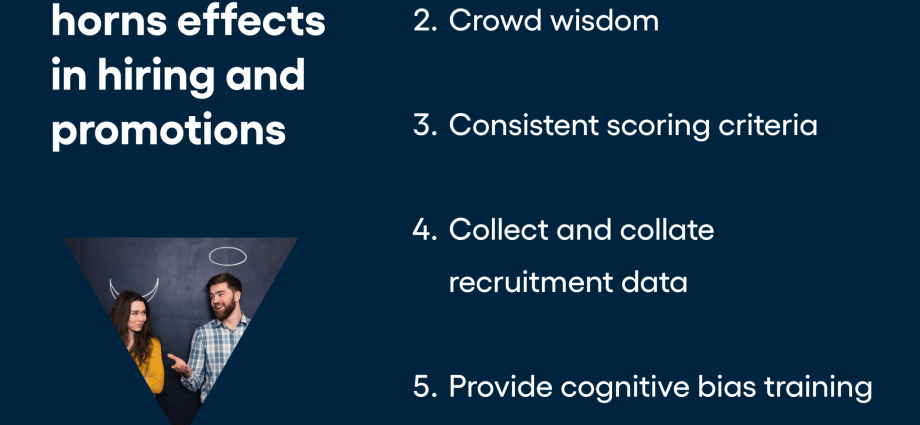The influence of this psychological phenomenon is very great. We all know how to «hang labels». Teachers give students a «diagnosis» of the eternal bully or the best in the class. We once and for all reward a colleague with the stigma of a successful employee or a failure. Why do we judge by the first and usually superficial impression? Is it possible to “break through” once formed opinions about us and about others?
Ако је први утисак о особи позитиван, укључујући и околности, онда се знак плус шири на све његове особине и поступке. Много му је опроштено. Ако је, напротив, први утисак замагљен, онда, ма колико се човек добро снашао у будућности, он се оцењује кроз призму почетне процене.
За Русе се овај ефекат може објаснити уз помоћ пословице „по одећи се састају, по уму испраћају“. Једина разлика је у томе што због утицаја хало ефекта обично „испрате“ све у истој одећи. А да би се иза њега видео ум, носилац ореола треба да се много потруди.
Често се предрасуде никада не превазилазе. Ово је посебно приметно у дечијим и адолесцентским групама. На пример, ако се новајлија у разреду не слаже добро и одмах га другови из разреда окарактеришу као непристојног, често је једино решење да промените разред, где можете да почнете изнова и поново покушате да оставите први утисак.
Шта је овај феномен?
In the 1920s, the American psychologist Edward Thorndike discovered that when we evaluate others, we are guided by the perception of certain personality traits — such as appearance, cheerfulness, talkativeness — and they overshadow everything else. The psychologist called this phenomenon the halo effect or the halo effect.
The halo effect describes an unconscious perception error: individual qualities of a person — attractiveness, external inferiority, exceptional achievements — dominate other qualities unknown to us, which we ourselves think out, finish drawing in our heads. The first impression overshadows everything else, creating a halo. In social psychology, the effect is referred to as cognitive distortions.
For example, imagine that you are introduced to a person with amazingly good manners — and in a few minutes you create in your head the image of a well-groomed, educated, eloquent, charming interlocutor.
In other words, a single distinguishing feature allows us to infer other unknown qualities.
An overweight person is often perceived as lazy, weak-willed, clumsy, or even stupid. Students with glasses are considered by many teachers to be more well-read and even smarter.
And, of course, Hollywood stars fall under the influence of the halo effect. Since many actors are associated with the characters they play, and we see them in reports and on TV as glamorous divas, we believe that they are like that in real life.
Па, најпознатији случај утицаја хало ефекта је Хлестаков из Владиног инспектора. Цело друштво га је у почетку прихватило као ревизора, не примећујући очигледне недоследности и грешке у његовом понашању и речима.
Зашто је нашем мозгу потребан овај ефекат?
Без хало ефекта, многи сектори привреде би једноставно пропали. „Ако носим исте панталоне као ова успешна пословна жена, оставићу исти утисак! Кинески аксесоар се моментално претвара у модни аксесоар (а чак му се и цена пење на неколико стотина евра) ако га примети и стави звезда или супермодел. Овако то отприлике функционише.
Али зашто би нас мозак намерно увео у замку? Током живота морамо да обрађујемо огромне количине информација. Морамо се кретати са минимумом информација, а за то морамо некако класификовати околне објекте и субјекте, комуницирати са њима. Хало ефекат поједностављује ове процесе.
If every time we deeply analyzed the entire incoming stream of visual and other stimuli, we would simply go crazy
So in a sense, the halo effect is our defense mechanism. But at the same time, we deprive ourselves of a more objective view, which means that we limit our capabilities. And the one on whom we «put on» a halo runs the risk of forever remaining in our eyes in the role we have invented for him.
Како превазићи хало ефекат?
Авај, „онемогућавање“ ореола је тешко, а често и немогуће. Можда ћемо је овога пута приметити у сопственој перцепцији другог или у сопственој процени, али ћемо следећи пут неприметно пасти под њен утицај. И иако сви знамо израз „не суди о књизи по корицама“, то је управо оно што сви често радимо.
If the person whom we awarded the halo is important and dear to us, the only antidote is to analyze our impression, decompose it into its components: highlight the leading, key feature for the halo and name the rest that are gone in our perception due to the halo effect on the second plan. Especially such a technique is necessary for managers, HR-specialists who make personnel decisions. For example, in Australia, resumes are not accompanied by photographs so that external data does not overshadow the competencies of the applicant.
Већина нас је бирачи, тако да не треба куповати ореола политичара који се, посебно пред изборе, труде да испадну изузетно љубазни, отворени и одговорни. И овде би ми сами требало да прикупимо информације о кандидату, како не бисмо постали жртва самообмане.
And no one prevents us from collecting information about ourselves and our own halo — about how others perceive us.
We can honestly say that we know about the phenomenon of the halo effect, and invite the interlocutor or colleague to look a little deeper under our “nimbus” and give us a chance to show all our qualities. Directness and sincerity are often disarming. You can also think about how we would like to look in the eyes of others and what we can do for this, but in such a way as to remain ourselves.










